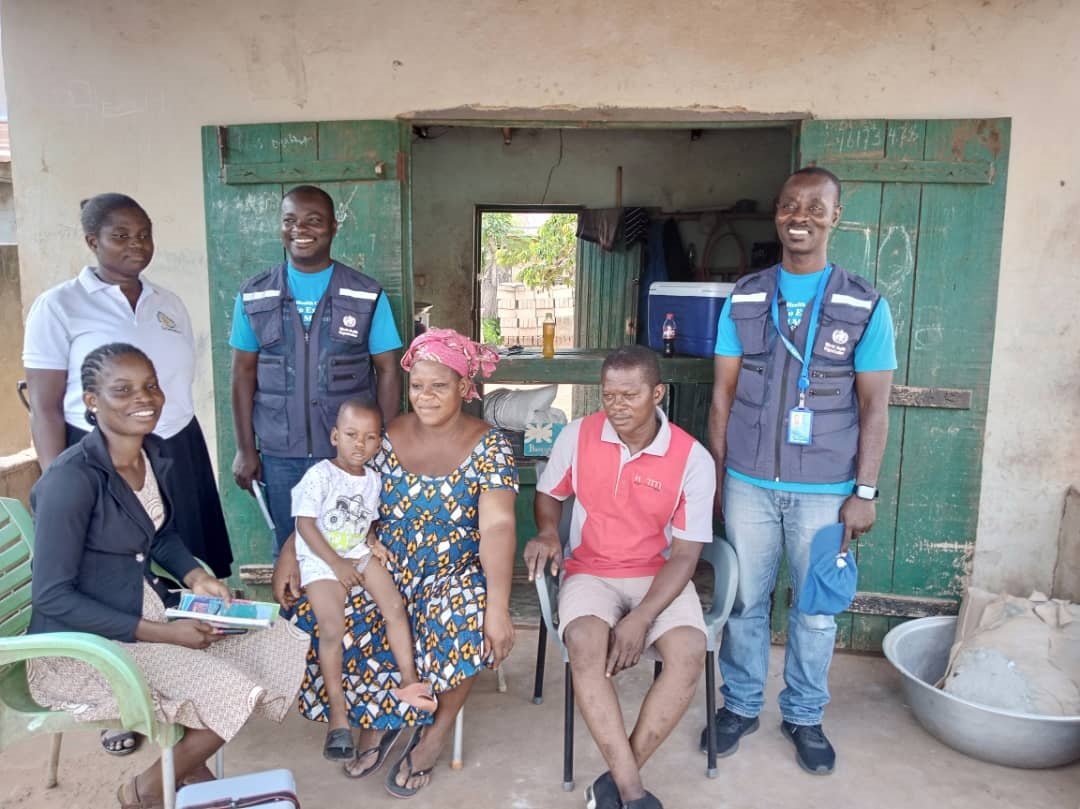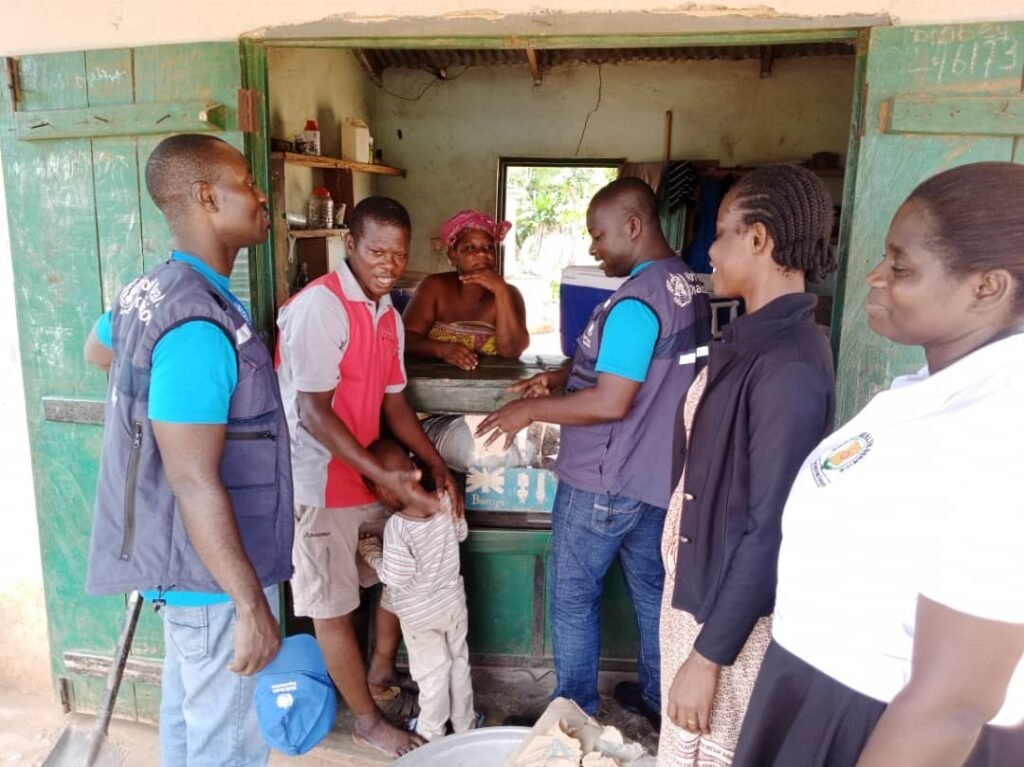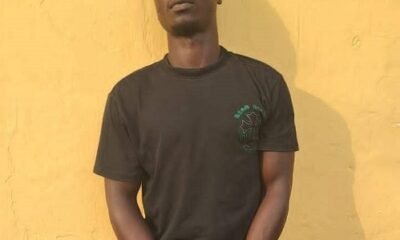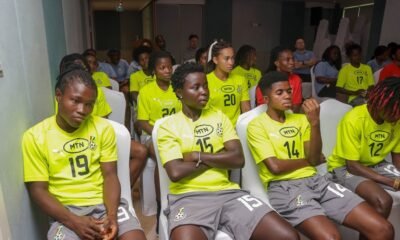News
Winning trust: A reluctant father’s change of heart on vaccination for his child

In the Ketu North District of Ghana, Erica Doe Hormeku, a passionate Community Health Nurse (CHN) at the Kasu Health Centre, dedicates herself to ensuring every child receives their routine immunisation.
Brimming with enthusiasm and commitment, Erica tirelessly follows up with caregivers, even those hesitant about vaccinating their children.
Despite her best efforts, there are a few who remain adamant, which worries her deeply.
“Some caregivers refuse vaccination for their children, and we follow up to talk to them. Many of these cases have been overturned, but others remain. My fear is that such attitudes are ‘infectious’ and could potentially impact vaccine uptake,” Erica shares.

One such case involved David, a 46-year-old teacher and father of four, who refused to have his youngest child, Dennis, vaccinated, even though his other children were fully vaccinated and remained healthy.
At three years old, Dennis had only received the Bacillus Calmette-Guerin (BCG) vaccine at birth. Under Ghana’s national immunisation schedule, Dennis should have completed his routine vaccinations by 18 months. However, missed doses can still be administered until age five.
David’s reluctance stemmed from a deep mistrust of vaccines. “My parents told me I was not given any vaccines as a child, but I am healthy. These vaccines contain germs that cause illness instead of the so-called protection. I want to use my son to prove to everyone that vaccines are not relevant,” he stressed when health workers visited his home.
Thanks to funding from Canada Global Initiative for Vaccine Equity (CanGIVE), Erica and a team from World Health Organisation (WHO) Ghana made a follow-up visit to David’s home. They spent time explaining to him and his partner, Janet, the benefits of vaccination, the safety measures in place, and the risks of leaving a child unvaccinated.
Dr Kwadwo Asante-Afari, WHO’s Technical Officer for Risk Communication and Community Engagement, shared his expertise during the discussion, saying, “Vaccines have contributed significantly to the reduction of deaths and illness, especially among children. Some diseases, including measles and polio, that once killed and maimed children are no longer encountered as often.”
After a thorough conversation, David’s stance began to shift. “I see the importance now, and I want to make sure my son is protected,” he said, agreeing to allow Dennis to receive his missed vaccines. A vaccination plan was created with input from the family, addressing concerns about multiple injections. Dennis was immediately vaccinated with oral polio vaccine, inactivated polio vaccine, pentavalent vaccine, and pneumococcal conjugate vaccine, with a follow-up schedule to complete the remaining doses.
Dennis’ mother, Janet, expressed her relief, saying, “It has always been my prayer that my partner agrees to Dennis’ vaccination just as the other children, and I am happy you defied the terrain and came this far to speak with him. I now have the assurance of my son’s protection against vaccine-preventable diseases.”
Gariba Abubakar Sumaila, the District Director of Health Services, acknowledged the positive impact of the intervention. “We shall work with the family to complete Dennis’ vaccination as planned. WHO’s intervention has been very impactful and will go a long way to strengthen demand for immunisation beyond this case. We have learned a lot from your approach and will scale it up to ensure every child benefits from vaccination”, he explained.
This successful engagement not only ensured Dennis received his vaccination but also strengthened community trust in immunisation. It’s a reminder that changing hearts and minds requires patience, dedication, and a commitment to protecting future generations.
News
Man sentenced to 25 years for robbery at Manso Akwasiso

A 30-year-old man has been sentenced to 25 years imprisonment with hard labour by the Bekwai Circuit Court for his role in a 2022 robbery at a mining site at Manso Akwasiso in the Ashanti South Region.
The convict, Dominic Ofori, also known as Fanta, was arrested on 16th February 2026 after years on the run. He pleaded guilty before the Bekwai Circuit Court to robbery contrary to Section 149 of the Criminal Offences Act, 1960 Act 29, and was accordingly sentenced to 25 years imprisonment with hard labour.
On March 20, 2022, the Manso Adubia District Police received intelligence that a group of armed men from Manso Abodom were planning to attack a mining site at Manso Akwasiso to rob the owner of gold concentrate. Acting on the information, police mounted a coordinated operation and laid an ambush at the site.
At about 5:30 pm the same day, four-armed men arrived at the site, fired indiscriminately, and robbed the miners of their gold concentrate. The police team on surveillance intervened, resulting in an exchange of gunfire.
Three of the suspects, Abu Abubakar, Musah Latif, and Gideon Takyi, sustained gunshot wounds and were pronounced dead on arrival at St Martins Catholic Hospital at Agroyesum. Dominic Ofori escaped at the time but was later arrested and put before the court.
The Ashanti South Regional Police Command has assured the public of its continued commitment to combating violent crimes and bringing offenders to justice.
News
Ashanti police arrest man for publishing false news on TikTok

The Ashanti Regional Police Command has arrested 45-year-old Isaac Boafo, also known as “Duabo King,” for allegedly publishing false news intended to cause fear and panic.
Police said the arrest follows a viral TikTok video in which Boafo claimed that four officers at the Central Police Station in Kumasi engaged in inappropriate conduct with commercial sex workers during night patrols in Asafo.
Officers from the Police Intelligence Directorate (Ashanti Region) apprehended Boafo after receiving intelligence about the video.
During questioning, he admitted to creating the video to attract views and engagement online, and acknowledged that he could not prove the allegations.
Boafo also admitted making comments about the President of the Republic for content purposes and could not defend those statements.
He has been formally charged and is in detention as investigations continue.
The Ashanti Regional Police have warned the public against publishing or sharing false information on social media, noting that such acts can cause fear, panic, and damage reputations.
They said anyone found engaging in similar conduct will face legal action.
By: Jacob Aggrey














